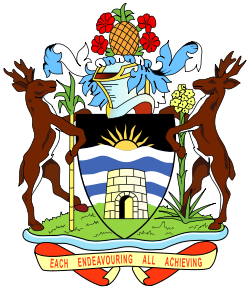Appointment and disqualification
The Governor-General must select the opposition leader, except when there aren't any House members who are against the government. When the need for a opposition leader arises, the Governor-General must appoint the member of the House who, in their opinion, is most likely to be supported by the majority of House members who oppose the government; or, if no member of the House appears to them to be so supported, the member of the House who, in their opinion, is most likely to be supported by the largest single group of House members who oppose the government provided that the Governor-General may, acting in his discretion, appoint any one of the two or more members of the House who oppose the government as opposition leader. In exercising this discretion, the Governor-General shall be guided by each member's seniority based on the number of years of service as a member of the House and by the votes cast in favor of each at the most recent election of members. [1]
If it is essential to select a opposition leader between the time that Parliament is dissolved and the day that the members of the House are subsequently elected, the appointment may be made as if Parliament was never dissolved. The Governor-General must remove the opposition leader from office if it appears that they can no longer gather the support of the largest group of members of the House who are against the Government or the majority of members of the House who are against the Government. [1]
This page is based on this
Wikipedia article Text is available under the
CC BY-SA 4.0 license; additional terms may apply.
Images, videos and audio are available under their respective licenses.


